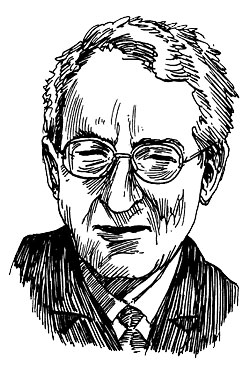
Who are independent voters anyway?
People caricature them as these better-educated, more ideologically moderate voters who sit back in their studies, read up on the issues, and come to considered judgments. But that’s one of the first myths that got debunked when people began to study voting behavior in a more systematic way. In truth, independent voters are less engaged and less informed.
Why does the myth of the considered centrist persist?
A lot of people have a vested interest in it. There are these bi-partisan deficit-reduction groups that think because Democrats are reluctant to do Medicare cuts and the Republicans are reluctant to raise taxes, the independent voter must therefore be willing to compromise on both. There’s no evidence that that’s true. We know from the way Obama carried independent voters in 2008 and the way Republicans carried them in 2010 that sometimes very strong positions taken by one of the parties sweep across the independents. Finding the position halfway is not necessarily the way to appeal to them. Clinton used to talk about “moving to the center,” and it would drive me crazy! There were swing voters and issues that were critical to them, like middle-class tax cuts and welfare reform, but they didn’t coincide with the center on the ideological spectrum.
So then who are independent voters, really?
Independents are a hodgepodge; it doesn’t work to look at them as having any common worldview. There are affluent suburban voters who are fiscally conservative and culturally liberal; there are seniors, who are more populist than the population as a whole; and there are a high number of white, blue-collar voters who are deeply angry and have been explosive in election after election. In 2006 and 2008, all these groups voted overwhelmingly for Democrats. In 2010, they voted overwhelmingly for Republicans. Right now, I don’t think we have a clue where they’re going.
How did the Democrats lose them?
Seniors were very upset over health-care reform, the squeezing of their pensions, and being forced back into the job market. Non-college white voters saw themselves facing declining incomes and concluded that the economic-recovery effort didn’t have a lot to do with them. Suburban voters—who had reacted against the Evangelical, Bush Republican Party—became much more focused on fiscal matters than cultural matters. All of them moved against the Democrats probably a good year before the 2010 election.
It sounds like they were mostly voting against Obama and the economy. Did they also embrace the Republican platform?
There’s no evidence of any attraction to the Republicans. The image of Republicans declined during the lead-up to the 2010 elections, and it’s gone down sharply since. They’re not looking to the Republican worldview and seeing that as an acceptable alternative.
Would they go to a third-party candidate?
Somebody will run as an independent in 2012. You don’t have 80 percent of voters saying we’re on the wrong track and not have an independent candidate. In 1992, Ross Perot carried 20 percent of the electorate with a pretty well-defined bloc that tended to be younger, white, male, and non-college. But right now, independents are so diverse that it’s not obvious that anyone could capture all of them. Trump might win the “fuck you” vote. Bloomberg might pick up more of the business-oriented suburban segments. I think the ideal candidate is probably a businessperson who’s not from the financial community, who has a strong anti-China current and a strong America-first current. I don’t see that person.
An angry America-first candidate … that sounds like a certain Texas governor.
Rick Perry’s fed-up attitude and anti-elitism might get the attention of blue-collar voters, but affluent suburbans who pulled away from Bush are going to move away from Perry. And remember, independents are also old people who want to protect their Medicare!
So Obama has a chance with independent voters?
Non-college whites are very populist. And older, non-college-graduate seniors are more populist than any segment of the electorate. They’re nationalist, they’re anti-immigration, and more than that they’re anti–Wall Street. What the president has done with his new proposals is exactly the kind of thing these voters might respond to. The idea that millionaires and hedge-fund managers ought to be paying their fair share is music to their ears.